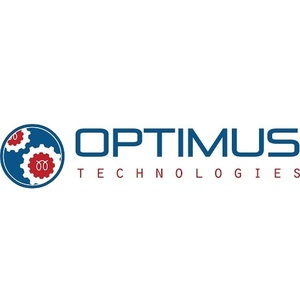Optimus Technologies authorized to begin California pilot program

July 19, 2022
BY Optimus Technologies Inc.
Optimus Technologies Inc. is a clean energy technology company based in Pittsburgh, Pennsylvania, that manufactures the Vector System, an advanced fuel system technology that enables diesel engines to operate on 100 percent biodiesel (B100). The Vector System is designed for medium and heavy-duty fleet applications to enable decarbonization of the transportation sector. Unlike electrification and hydrogen solutions, Optimus’ Vector System is a technology that is in use today at scale with leading municipal and private fleets throughout the country.
On May 23, the California Air Resources Board Emissions Certification and Compliance Division issued Executive Order D-864. Having determined that Optimus’ Vector System does not reduce the effectiveness of the applicable vehicle pollution control system, EO D-864 provides an exemption for the use of the Vector System in the State of California in model years 2010-2019 on-road diesel engines ranging in size from 6.7 liters to 16.0 liters. CARB’s Oil and Gas and GHG Mitigation Branch previously issued to Optimus EO G-714-ADF-ST1-01, which authorizes an Alternative Diesel Fuel Stage 1 Pilot Program to use the Vector System with 100 percent biodiesel fuel upon receipt of an EO from the Emissions Certification and Compliance Division. With receipt of both EO D-864 and EO G-714-ADF-ST1-0, Optimus is now authorized to begin its Stage 1 Pilot Program for the Vector System in California. To Optimus’ knowledge, both Executive Orders are the first of their kind to be issued by CARB.
Biodiesel is a domestically produced advanced biofuel made from renewable plant and animal materials such as soybean oil and beef tallow, as well as recycled used cooking oils. Biodiesel is readily available in California today as a blended product with traditional and renewable diesels but until now, the maximum usable blend has been limited to 20 percent.
Advertisement
According to CARB’s Low Carbon Fuel Standard Pathway Certified Carbon Intensities data, 100 percent biodiesel fuel, due to the biogenic sources that it is derived from, has carbon intensity values as low as 8.61. When compared to California average refinery diesel fuel with a carbon intensity of 100.5, B100 provides up to a 91 percent reduction in carbon. In addition to the carbon reduction benefits, biodiesel fuel also has a higher cetane rating, increased lubricity, and generates 58 percent less engine combustion particulate matter2, all of which contribute to a reduction in operating and maintenance costs, improved efficiency, and extension of engine life.
Colin Huwyler, founder and CEO of Optimus Technologies, highlights the importance of decarbonization of the transportation sector, specifically heavy-duty transportation that is challenging and costly to electrify. “Climate science is clear. The planet is warming at an alarming rate, and the biggest contributor to that change is greenhouse gases produced by industry. Carbon emissions are cumulative in the atmosphere, and we know that reductions made now have a greater impact than reductions made in twenty years. At Optimus Technologies, we know that the drive to carbon neutrality will take multiple technologies and recognize that electrification has made great progress in light-duty vehicles. The reality though is that electric vehicles just aren’t well suited for the demanding requirements of heavy-duty applications like long-haul shipping, refuse collection, snow removal and many others basic functions our society relies on every day. The Vector System is already hard at work providing an immediate pathway to achieve carbon neutrality from Washington D.C. to Portland, Oregon. Biodiesel is ready today, it is available at scale, and the Optimus Vector System brings the benefits of B100 to heavy-duty fleets. We are excited to have secured the necessary Executive Orders to begin Optimus’ Stage 1 Pilot Program in California.”
Advertisement
Optimus is excited to hit the ground running, partnering to deploy the first Vector Systems, in California with Valley Pacific Petroleum, a family-owned fuel distributor that has been fueling California since 1947. Valley Pacific understands what it means to deliver quality fuels to California and embraces the advances that B100 and Optimus Technologies unlock for sustainable, responsible heavy-duty fleet operations.
For more information about Optimus Technologies, B100, or the California Executive Orders, visit www.optimustec.com. For more information on Valley Pacific Petroleum visit www.valleypacific.com.
Related Stories
The USDA’s Risk Management Agency is implementing multiple changes to the Camelina pilot insurance program for the 2026 and succeeding crop years. The changes will expand coverage options and provide greater flexibility for producers.
EcoCeres Inc. has signed a multi-year agreement to supply British Airways with sustainable aviation fuel (SAF). The fuel will be produced from 100% waste-based biomass feedstock, such as used cooking oil (UCO).
SAF Magazine and the Commercial Aviation Alternative Fuels Initiative announced the preliminary agenda for the North American SAF Conference and Expo, being held Sept. 22-24 at the Minneapolis Convention Center in Minneapolis, Minnesota.
Saipem has been awarded an EPC contract by Enilive for the expansion of the company’s biorefinery in Porto Marghera, near Venice. The project will boost total nameplate capacity and enable the production of SAF.
Global digital shipbuilder Incat Crowther announced on June 11 the company has been commissioned by Los Angeles operator Catalina Express to design a new low-emission, renewable diesel-powered passenger ferry.
Upcoming Events










